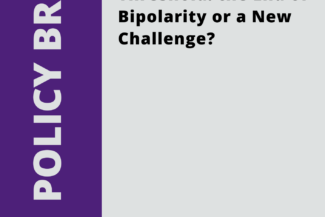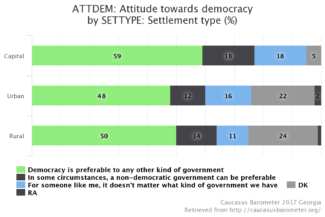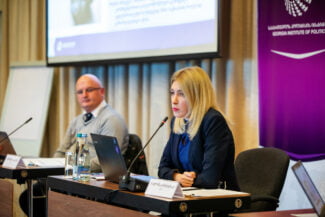26-05-2021
The recent post-election crisis highlighted the role of political radicalization as a major challenge for Georgia’s fragile democracy. Political radicalization in Georgia undermines the process of democratic consolidation and weakens state institutions in the country by contributing to mistrust among political actors, political disengagement of the electorate, polarization of political trust, and a general lack of political legitimacy. The polarization of political trust and a lack of political legitimacy of key state institutions – first of all, the judiciary and central election commission (CEC) leave the country without effective crisis mediating institutionswhich cannot be fully replaced by external mediation attempts leaving the country open for a permanent political crisis. This policy brief argues that there are two broad long-term solutions to the radicalization of Georgian politics: institutional and societal. Institutionally, key actors who have a major role to play in political deescalation – courts and the CEC – should be institutionally reformed and have all of their inherent political bias removed. For the public, the image of these and other key state institutions should also be improved, as the perceptions of the country’s society are equally important for the integrity of the electoral process and for overcoming political radicalization in Georgia.










